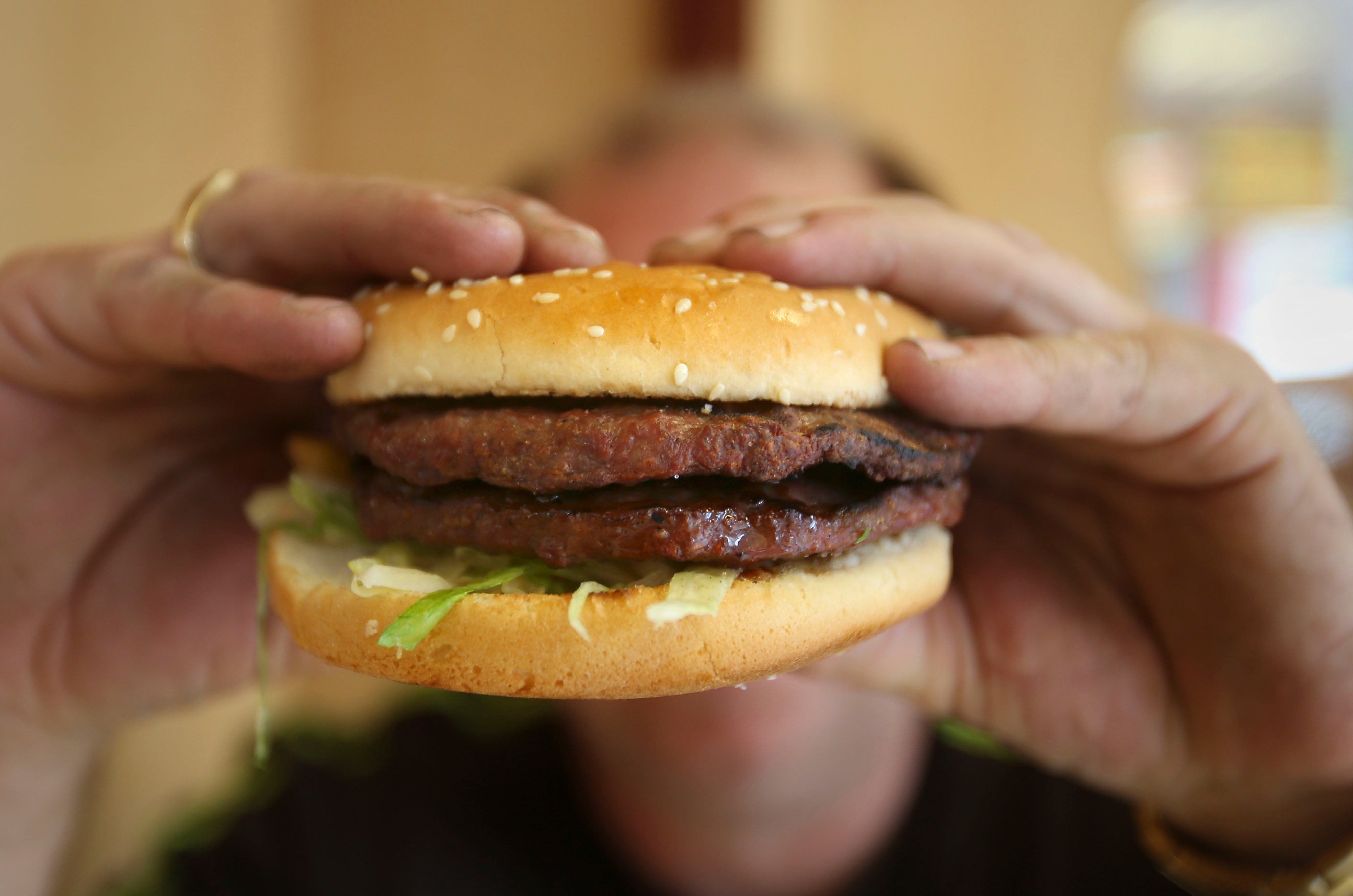Eating ultraprocessed food could increase dementia risk, study warns
Researchers tracked the eating habits of more than 10,000 Brazilians for up to 10 years

Your support helps us to tell the story
From reproductive rights to climate change to Big Tech, The Independent is on the ground when the story is developing. Whether it's investigating the financials of Elon Musk's pro-Trump PAC or producing our latest documentary, 'The A Word', which shines a light on the American women fighting for reproductive rights, we know how important it is to parse out the facts from the messaging.
At such a critical moment in US history, we need reporters on the ground. Your donation allows us to keep sending journalists to speak to both sides of the story.
The Independent is trusted by Americans across the entire political spectrum. And unlike many other quality news outlets, we choose not to lock Americans out of our reporting and analysis with paywalls. We believe quality journalism should be available to everyone, paid for by those who can afford it.
Your support makes all the difference.Regularly eating ultraprocessed food as a fifth or more of your daily calorie intake could increase your risk of contracting dementia, a new study has warned.
Preserving congitive function may mean doing away with hot dogs, burgers and frozen pizzas, say scientists, who warn the part of your brain that processes information and makes decisions is most acutely impacted by regular consumption of such foods.
According to the study published in JAMA Neurology on Monday, people who eat the most ultraprocessed foods have a 28 per cent faster rate of global cognitive decline and a 25 per cent faster rate of executive function decline compared those who eat very little over-processed food.
Dr David Katz, a specialist in preventive and lifestyle medicine and nutrition, was not involved in the study but told CNN the research was “robust enough that we should conclude ultraprocessed foods are probably bad for our brains.”
He noted, however, that in instances where the overall quality of a participant’s diet was high – rich in unprocessed wholefoods, fruit, vegetables, grains and healthy protein – the link between ultraprocessed foods and brain function dissipated.
The study was presented on Monday at the 2022 Alzheimer’s Association International Conference in San Diego.
Researchers tracked more than 10,000 Brazilians for up to 10 years. Just over half of the study participants were women, white or university educated. The average age was 51.
The participants were asked to take part in a variety of cognitive tests, such as immediate and delayed word recall, word recognition and verbal fluency. The tests were set at the beginning and end of the study, and participants were asked about their diet.
“In Brazil, ultraprocessed foods make up 25 per cent to 30 per cent of total calorie intake,” co-author Dr. Claudia Suemoto, an assistant professor in the division of geriatrics at the University of São Paulo Medical School, said.
“Fifty-eight percent of the calories consumed by United States citizens, 56.8 per cent of the calories consumed by British citizens, and 48 per cent of the calories consumed by Canadians come from ultraprocessed foods,” Dr Suemoto said.
The study defined ultraprocessed foods as “industrial formulations of food substances (oils, fats, sugars, starch, and protein isolates) that contain little or no whole foods and typically include flavorings, colorings, emulsifiers, and other cosmetic additives.”
Co-author Natalia Gonçalves, a researcher in the department of pathology at the University of São Paulo Medical School, said: “People who consumed more than 20 per cent of daily calories from processed foods had a 28 per cent faster decline in global cognition and a 25 per cent faster decline in executive functioning compared to people who ate less than 20 per cent.”
Though also known to raise the risk of obesity, heart and circulation problems, diabetes, cancer and a shorter life span, ultraprocessed foods pose “perhaps the most major threat to healthy aging in the body and brain,” said Dr Rudy Tanzi, professor of neurology at Harvard Medical School.
“Meanwhile, since they are convenient as a quick meal, they also replace eating food that is high in plant fiber that is important for maintaining the health and balance of the trillions of bacteria in your gut microbiome,” Dr Tanzi told CNN, “which is particularly important for brain health and reducing risk of age-related brain diseases like Alzheimer’s disease.”
Scientists suggest countering ultraprocessed foods by also eating high-quality, whole foods such as fruits, vegetables and whole grains. An easy way to do so is to cook from scracth, Dr Sumeto suggested.
“That’s the take-home message: Stop buying things that are superprocessed,” she said.






Join our commenting forum
Join thought-provoking conversations, follow other Independent readers and see their replies
Comments